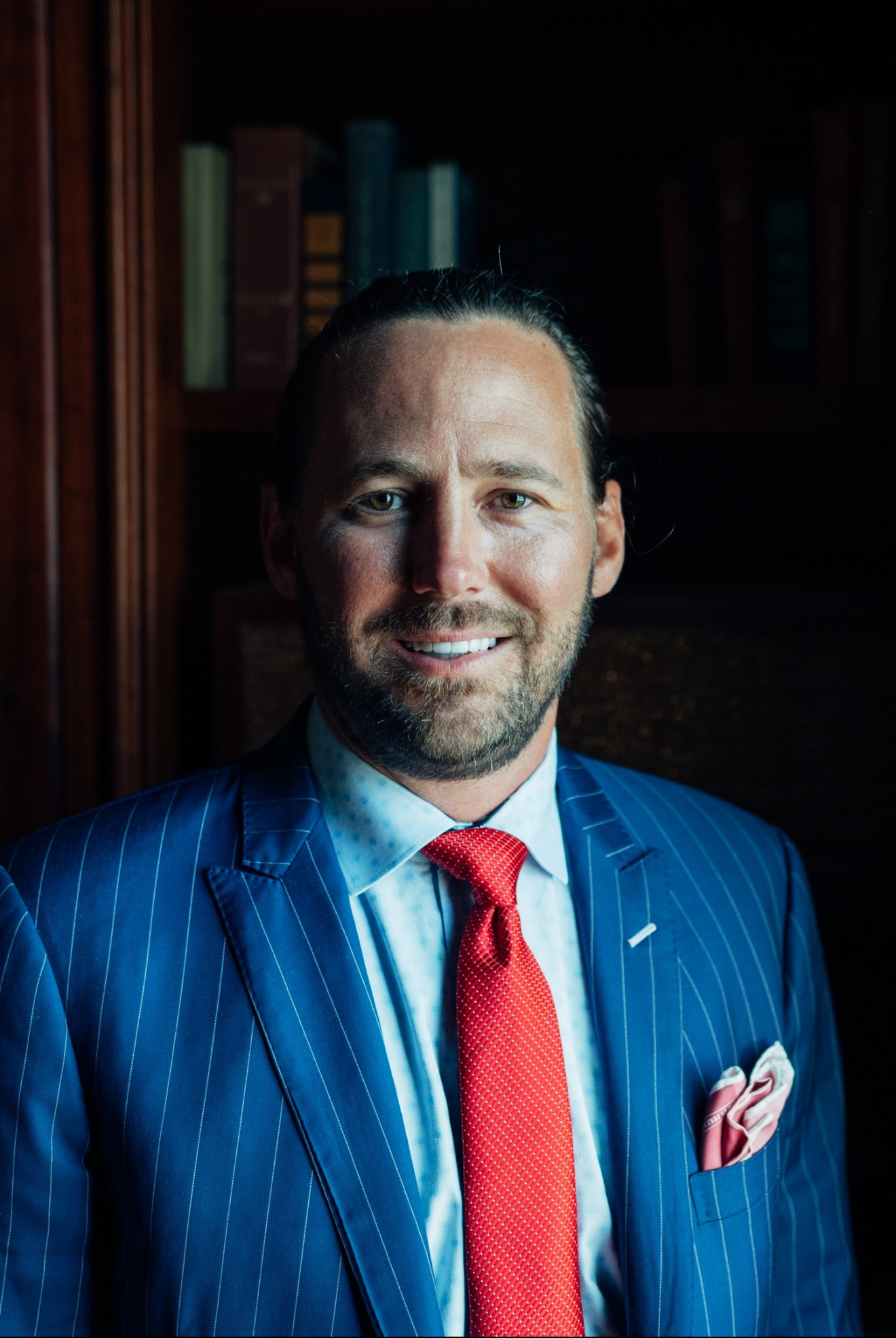Ed Clay is a former MMA fighter, international healthcare entrepreneur, and the visionary founder of TAM Global, CPI Stem Cells, and the newly opened TAM Center in Tijuana, Mexico—one of the most advanced hospitals in the world for cancer, chronic disease, and regenerative medicine.
Born and raised in Nashville, Tennessee, Ed started boxing at age 13, mentored by his father and uncle who were both passionate about combat sports. By his late teens, he was immersed in the underground world of mixed martial arts, launching Submission Fighter and later Fight! Magazine, one of the earliest publications dedicated to MMA. At 18, he was writing about fighters he would soon be training with. By his early twenties, Ed had opened what would become the largest MMA gym in the country, coaching 22 world champions and founding a successful fightwear brand.
But behind the success was chaos. At 20, Ed was arrested on felony drug charges and faced up to eight years in prison. While awaiting sentencing, he borrowed $20,000 and opened his gym—determined to rewrite his story. The gamble worked. His sentence was reduced, the gym flourished, and Ed became a self-made millionaire by age 24. He began speaking in prisons and working with at-risk youth, including MMA programs for kids in the Bronx, believing deeply in second chances and the discipline of sport.
In 2008, a serious injury brought Ed to a new crossroads. Prescribed opioids by team doctors, he found himself physically dependent on painkillers. Desperate to get clean, he took a bus to Mexico City in search of ibogaine, a psychedelic plant medicine known for interrupting addiction. The experience transformed him. “After that treatment, I never had another craving,” he says. That moment sparked a new question: What else exists outside the boundaries of conventional medicine that could actually help people?
That question became a mission.
Over the next decade, Ed assembled a global team of scientists, physicians, and bioengineers. In 2020, he launched CPI Stem Cells, which later became the official stem cell provider for the UFC. In 2025, he opened the TAM Center, a groundbreaking hospital and research hub in Tijuana focused on precision medicine, regenerative therapies, and translational science.
The TAM Center integrates:
- Multiomic diagnostics, including advanced genomics, digital pathology, and full-body MRI/CT
- Five cleanrooms for individualized cellular manufacturing
- Mexico’s first Illumina iSeq 100 sequencer
- AI-powered clinical decision support
- A team of 42 medical doctors, 16 PhD scientists, and over 250 staff
The Center treats cancer, autoimmune disease, neurodegeneration, and complex chronic conditions with therapies that combine science, speed, and soul. Patients receive care informed by biomarkers, genomics, immunotherapy, and the latest research from global partners—all under one roof.
Ed’s approach challenges the inefficiencies and delays of traditional healthcare systems. While a new drug in the U.S. may take 10 years and $500 million to reach market, Ed has built a vertically integrated infrastructure where personalized treatments can be designed, manufactured, and delivered in real time—without sacrificing scientific integrity or patient safety.
At the heart of his work is a deep and evolving faith in God. Ed credits his spiritual transformation—and survival—to divine guidance. “There’s no way I could get through this without prayer,” he says. “There were years I was praying 10–20 times a day.” A year and a half ago, an image of Archangel Michael, which appeared to him twice through unexplainable means, became a personal sign of divine protection. Today, he attends weekly sermons, works with psychologists and spiritual advisors, and incorporates holistic care—including prayer, art therapy, and emotional support—into the TAM Center’s model.
As a speaker, Ed brings raw honesty, deep knowledge, and a profound sense of purpose. He bridges worlds rarely brought together—combat sports and cancer care, psychedelics and immunotherapy, prison sentences and precision medicine. Through it all, he has stayed grounded in one belief: we can do better—for patients, for families, and for the future of medicine.
